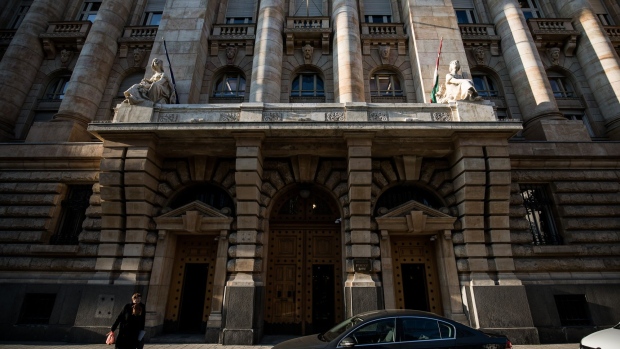Jan 25, 2022
Hungary Raises Rates More Than Expected as Inflation Persists
, Bloomberg News

(Bloomberg) -- Hungary raised its nominal base interest rate for an eighth consecutive month after inflation failed to slow in line with the central bank’s forecasts.
The National Bank of Hungary boosted the required reserve rate to 2.9% from 2.4% on Tuesday, more than the median estimate in a Bloomberg survey. It also raised the ceiling on its interest-rate corridor to 4.9% from 4.4%, to make way for further monetary tightening via the weekly deposit rate, which has displaced the reserve rate as the effective key rate.
A statement explaining the decision will be published at 3 p.m. in Budapest, and Deputy Governor Barnabas Virag will hold a briefing online.
Central bankers continued to push for tighter monetary policy after headline inflation stayed at a 14-year high of 7.4% in December, matching the prior month despite central bank expectations that it would slow.
The core inflation rate, which strips out volatile food and energy cost swings, rocketed to the highest in 20 years, as record pre-election spending also boosted domestic demand.
The required reserve rate, set once a month, has been overtaken by the weekly deposit facility as the central bank’s key interest rate since it was raised above the reserve rate in November to fight currency depreciation. At 4%, it’s currently the highest key interest rate in the European Union.
Policy makers have vowed to feed any increase in the reserve rate into the weekly facility, which is set every Thursday. The weekly rate has been unchanged for the past three weeks after seven consecutive hikes helped shore up the forint, making it the best-performing emerging European currency this month.
©2022 Bloomberg L.P.